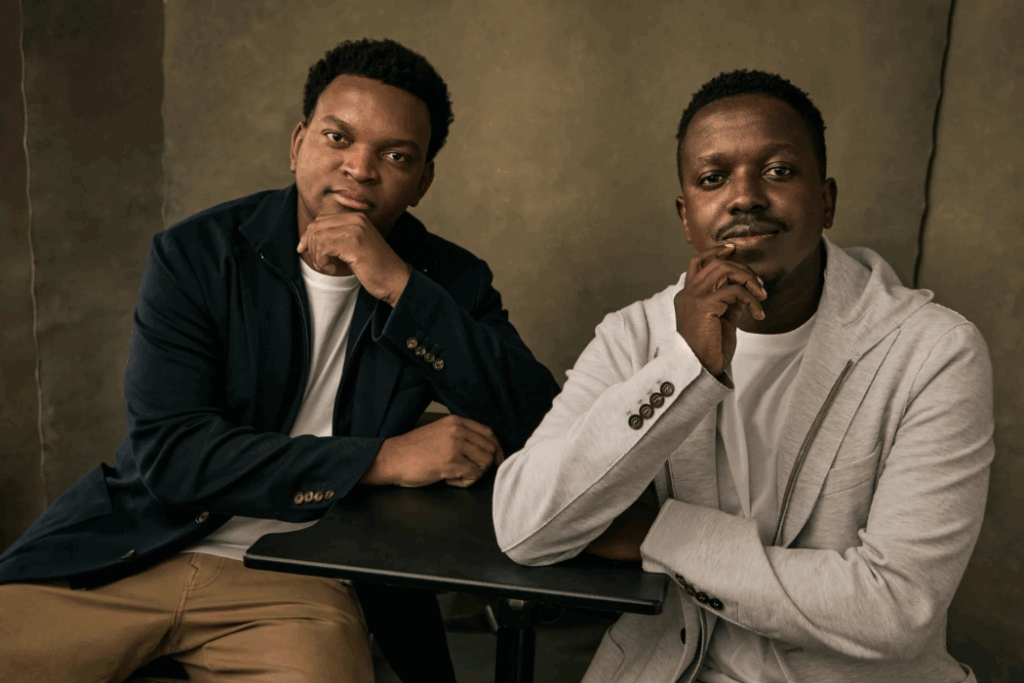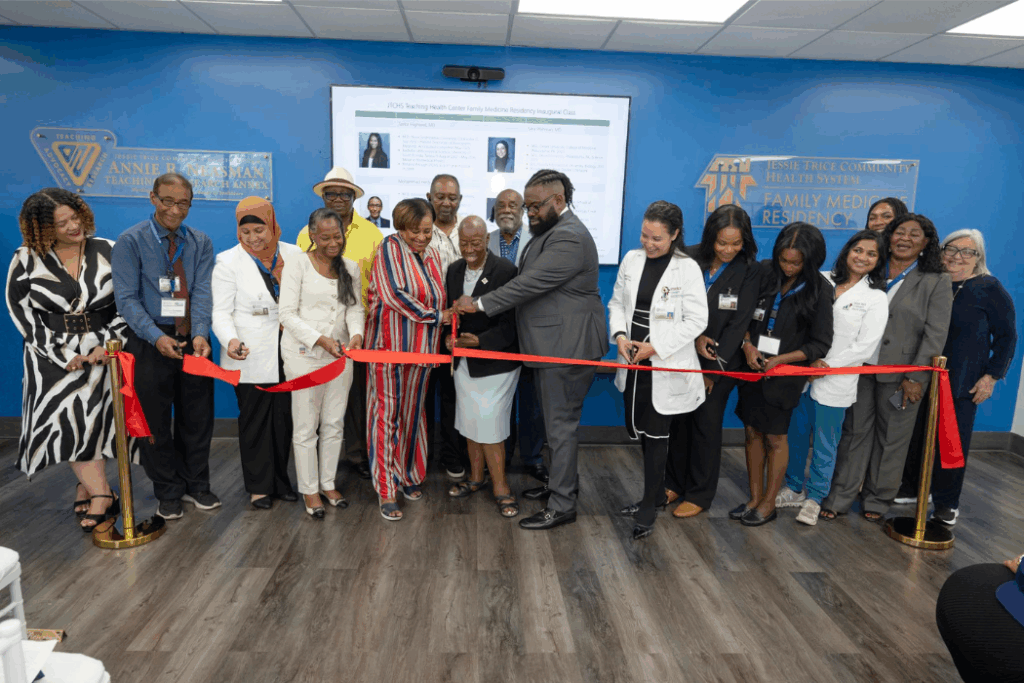
Despite his own lack of role models, Diego Torres-Palma has blazed a path that other entrepreneurs can follow
Peruvian-American entrepreneur, real estate developer, and co-host of the Startup to Storefront podcast, Diego Torres-Palma, has always had a fierce desire to put himself on the map.
Coincidentally, when his family first landed in Massachusetts after fleeing Lima for political asylum, Torres-Palma recalls that few of his elementary school classmates and teachers could actually locate Peru on a map.
“Students and teachers would ask, ‘Where are you from?’ and I’d say, ‘I’m from Peru,’” Torres-Palma says. “People were like, ‘Where’s Peru?’ I’d go over to the globe and I would spin it and show them. They were like, ‘What?! You’re from there? How did you get here?’”
But Torres-Palma never felt ashamed or upset about sharing his roots. By embracing his story and encouraging others to do the same, the 35-year-old has found the ambition, innovation, and sense of community that have brought him success.
BECOMING A FOUNDER
As a young person, Torres-Palma had few Peruvian-American role models to emulate, let alone any in the fields of business or real estate. So, he took it upon himself to become an example of success for him and his community.
“There are no Peruvians in the NBA. You know what I mean?” Torres-Palma asks. “There’s no Peruvian professional tennis player, developer, actor. So, I really looked at it like I need to solve this problem and I need to find a way to create success.”
In his early 20s, Torres-Palma threw himself into civil engineering, which he knew would provide a good living. But it didn’t feel right.
“I was just solving for income and that’s it,” he says. “I went to school and I chugged my way through civil engineering and it was not easy. Then I graduated and I had a really good salary. I remember making six figures when I was 21, but I was like, ‘Is this it?’”
“I needed to go and start a company,” Torres- Palma adds. “The path became clear. So, I moved to Boston to go to business school and I started a bowtie company, of all things.”
While attending Boston University in 2010, Torres-Palma started his bowtie company, OoOTiE. It had a clear, innovative vision to bring the fashion accessory to a younger audience, while illustrating a potential way for brands to create useful, interesting app experiences.
“The app store just came out on Apple iPhones,” Torres-Palma says. “We knew it would [have] games … but what we didn’t know was how [would] brands create an experience without being sales-y?. We just came up with an idea: Let’s create an app that lets you try [on a bowtie] before you buy it. Put your phone to your neck and … you can see the colors and the contours of the bowtie.”
A relevant and ingenious idea, Torres-Palma’s bowtie app grew, and he continued to run the business well after he graduated with his MBA in 2013. By 2016, Torres-Palma pivoted to get involved with a data analytics start up in the parking industry.
The San Francisco-based start up, Smarking Inc., was one of the earliest companies to apply data analytics to the parking industry. Smarking centralized all parking data from meters, mobile payments, and access control equipment in order to provide parking owners and operators with a 360-degree view of their operations, allowing them to grow their profit margins. Until late 2017, Torres-Palmas worked as Smarking’s vice president of sales and growth, gaining unexpected insight that would lead him to start his own company, Ventana Ventures.
“There are a bunch of infrastructure funds that exist all over the world and they love buying parking assets, because, essentially, it’s a great piece of real estate,” Torres-Palma says. “What we learned with the parking data analytics company was how these assets are traded … most parking assets are cash or were at one time. So, if you’re buying this huge parking structure, there isn’t any data to show you what your levers are for growth.”
Hence, not only could parking data help operators better understand parking behavior, but it could also be used as a tool in real estate development by these large infrastructure funds.
“What we would do [with our parking data] is become a consultant to these infrastructure funds as they were buying assets to show them the levers for charging more money, and in that I learned real estate development,” he says. “So, what they’re actually doing is saying, ‘OK, I’m buying this asset at X dollars and it makes X money, but if I can create a higher revenue, a higher net operating income, I can sell it for more money.’ I was like, ‘Oh, it’s so simple.’”
STARTING VENTANA VENTURES
By 2018, Torres-Palma decided to leave the parking industry and move to Los Angeles with his wife. He had relocated without a job, but real estate development was on his mind. Gradually, he began getting to know local brokers and taught himself how to financially model for real estate development.
“So, if I’m going to buy a building, let’s say at $4 million, [modeling is about] what rent do I need,” Torres-Palma says. “I would model it out to say, ‘OK, does this make any sense? Are people going to actually pay this rent in West Hollywood or Beverly Hills?’ I just went through that exercise for three, four months every day at a local coffee shop and, little by little, I found different projects that had some potential.”
As he continued teaching himself the real estate industry, Torres-Palma also found ways that he believed development could be done better. By 2018, this inspired him to create Ventana Ventures, a real estate development and investment firm.
In an age when gentrification is the dirty word on the tip of everyone’s tongue, particularly when it comes to communities of color, Ventana Ventures promises to redefine what it means to be a developer.
Torres-Palma vows to innovate the traditional real estate development process—buying land or property, fixing it up, leasing it, and then finding your customer. He finds this process to be fundamentally flawed.
“To me, it made no sense,” Torres- Palma explains. “Why wouldn’t you find the tenant first, buy a building that they want? Like, if I’m a coffee shop, [find a building] to my coffee shop size or if I’m a brewery to my brewery size. Then, you have a lease, you do construction together.”
By finding ideal clients their ideal properties instead of the other way around, the Ventana Ventures model plays to everyone’s strengths: It allows the buyer to work on design and construction with someone they can trust, and it prevents the real estate developer from having an asset sit on the market without a tenant or failing after a few months.
This process also allows Torres-Palma to elevate unique and diverse business concepts—as well as minority business owners—that may otherwise have difficulty getting off the ground.
For instance, Ventana Ventures’ first development project was in Bell, California, in 2018. For 12 years, a 7,000-square-foot, city-owned building sat empty on a prime corner of the city. The building was too big for a coffee shop or restaurant, but Torres-Palma thought a brewery might do well there.
“So, our pitch was, look, maybe we can pull off a brewery, and [then] we said, ‘OK, what is the city of Bell? The city of Bell today is about 98 percent Latino. Can we find someone who speaks to that community?’” he says. “We ended up finding a brewery based out of San Diego that uses Mexican ingredients in their beer. We thought, this [works] with the community, we’re not displacing anyone, we’re bringing a business that looks and feels like that community, and so there’s alignment there.”
This is how Ventana Ventures avoids the disruption and displacement that is so common with big development projects. Torres-Palma believes that taking a dilapidated, empty building and making it useful again—with care and deference to the existing neighborhood—enhances a community. But he also notes that, for some people, any progress, no matter its intentions, is a threat.
“If there’s alignment with communities and retail or restaurants and coffee shops, they typically are successful,” Torres-Palma says. “But some people— not many people—will have a reaction to it in a negative way, and I respect that. I totally understand that. We try to do our best. We try to buy dilapidated [property] that, frankly, should have been improved a long time ago and we’re just … beautifying something.”
The success of his developments speak for themselves. In the four years since its founding, Ventana Ventures has completed three consumer-facing development projects, each with their own unique story. Along with Border X Brewery in Bell, Ventana Ventures has developed Farm Cup Coffee, a bright, LGBTQ-owned coffee shop in West Hollywood with a food truck permanently installed inside; and Pasadena Medical Office, a medical office building with 15 exam rooms. Another exciting project, Benny Boy Brewing, Los Angeles’ first brewery and cider house, is set to open soon.
MAKING ENTREPRENEURSHIP MORE ACCESSIBLE
As Torres-Palma established Ventana Ventures, he found himself wanting to share his story and the story of other founders with the world. So, in 2019, he started recording a podcast with his wife, Natalya Cappellini, who owns her own commercial construction company, and Nick Conrad, an LA-based video producer.
“I was hearing all these start up podcasts and none of them really hit,” Torres-Palma says. “It was almost like the person asking the of starting a company in a real way. I kept saying, ‘They’re not going deep enough.’”
Torres-Palma’s podcast, Startup to Storefront, documents the experiences of founders from all over the world—from the husband-and-wife owners of an LA-based, cold-pressed juice company to an Australian muralist. Each episode explores the problems and triumphs unique to the guest, with the purpose of encouraging others to see themselves in entrepreneurship and going after their own goals.
“One of the things we talk about on the podcast a lot is imposter syndrome or just giving yourself permission to do the thing that you think sounds crazy,” Torres- Palma says. “The way I look at it is, take all your strengths—what are those things? Those are the things that only you create in this world. Only you have that lens. In the years since the podcast began, it has grown and attracted notable guests. In 2020, it featured actress and activist Sophia Bush and, last July, the show spoke with Diana Nyad, the only human to ever swim from Cuba to Florida. Startup to Storefront has also gained sponsorship from brands like Chobani and CAT.
“Our whole goal was, ‘How do we make entrepreneurship safe?’ At least, taking that initial leap,” Torres-Palma says. “We want people to know that if you’re listening and you’re on the fence about starting your own company, here is someone who’s just like you.”
With every new business venture and the well-loved podcast, Torres-Palma’s career has been all about sharing and embracing diverse experiences—including his own as a Peruvian immigrant and powerhouse serial entrepreneur—to expand the boundaries of what is possible for himself and for anyone else with a dream.
“The reality is when you come here from another country, you don’t have many examples to choose from of others who became successful in this country,” he says. “I just kind of took it on my back and was like, I am going to be the guy, the future uncle, that people can point to and say, ‘Diego did it.’ That was always in the back of my head. That’s [my] motivation at the end of the day.”













